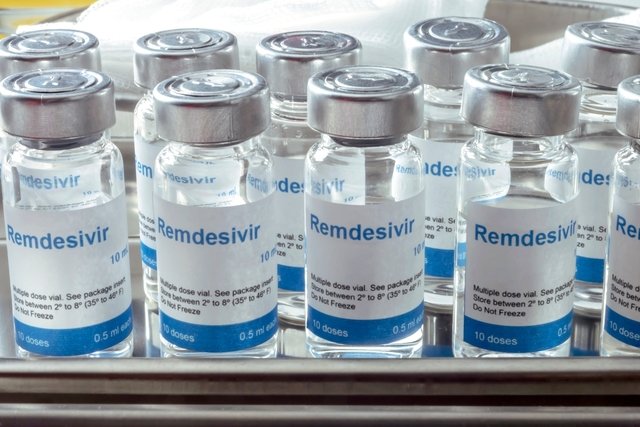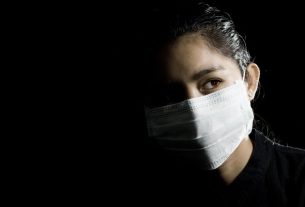Medicines approved by Anvisa and the Ministry of Health against COVID-19, such as Paxlovid, Evusheld and Remdesivir, prevent the virus from replicating and/or entering cells, preventing infection or the development of serious cases of COVID-19. However, they should only be used in the hospital after a doctor’s recommendation, as their use varies according to the general state of health and the severity of the disease.
There are also other medications, such as analgesics and antipyretics, which do not fight the virus, but which can be used at home and are approved to alleviate symptoms of COVID-19 such as fever, tiredness or sore throat.
Milder cases of COVID-19 can be treated at home with rest, hydration, and the use of fever medications and pain relievers. More serious cases, with more intense symptoms and complications such as pneumonia, need to be treated in the hospital, and it may be necessary to use medicines approved by Anvisa to eliminate the virus. See more details about treatment for COVID-19.

Remedies for use at home
Remedies that can be used at home are those that relieve symptoms, such as:
- Antipyretics (paracetamol): to lower the temperature and fight fever;
- Analgesics (paracetamol, ibuprofen): to relieve muscle pain throughout the body;
- Antibiotics: to treat possible bacterial infections that may arise along with COVID-19.
Although they are approved, any of these remedies should only be used under the guidance of a doctor.
What is the “COVID Kit”?
The medicines included in the “COVID kit” have little or no effectiveness against the new coronavirus, so it is not recognized and recommended by the Brazilian Medical Association to combat COVID-19.
The “COVID Kit” corresponds to a set of medicines that were recommended by some health professionals with the aim of treating patients infected by SARS-CoV-2.
Medicines for use in the hospital
The medicines that are approved for the treatment of coronavirus by Anvisa and the Brazilian Ministry of Health are:
1. Tocilizumabe
Tocilizumab is a monoclonal antibody indicated for use in hospitals, as it helps reduce the severity and duration of COVID-19 infection, due to its immunosuppressive action on the immune system, inhibiting the interleukin protein IL-6, which is produced by the body when there is acute inflammation, being found in the body at high levels when the person has a severe coronavirus infection.
In this way, tocilizumab helps to reduce the inflammatory response in the body caused by SARS-CoV-2, being indicated for adults hospitalized with severe infection, and who are being treated with corticosteroid medicines and who are undergoing oxygen therapy, mechanical ventilation or membrane oxygenation. extracorporeal surgery (ECMO).
Tocilizumab was approved by Anvisa on September 14, 2022.
Side effects: The most common side effects are a runny or stuffy nose, sinus pain, sore throat, headache, dizziness, pain in the stomach area, mouth ulcers, gastritis or increased blood pressure.
2. Remdesivir
Remdesivir is an antiviral medication for hospital use capable of preventing the virus from replicating and, thus, preventing the development of the disease. The use of Remdesivir is indicated for adults, children who weigh at least 40 kg, or babies over 28 days old and weighing more than 3 kg, positive for SARS-CoV-2 who have pneumonia and who are undergoing oxygen therapy or not, as long as who are not on mechanical ventilation, and who are at increased risk of severe COVID-19.
Remdesivir was registered by Anvisa on March 12, 2021, and its use expanded and approved for use in babies and children from 28 days of age and weighing 3 kg or more, on November 21, 2022.
Side effects: The most common side effects are increased or decreased blood pressure, changes in heartbeat, fever, wheezing, difficulty breathing, nausea, vomiting, skin sores and chills, in addition to changes in the liver and kidneys. Therefore, it is essential that Remdesivir is applied in the hospital so that the person is monitored and, thus, it is possible to prevent and control side effects.
3. Paxlovid
Paxlovid is a medicine made up of ritonavir and nirmatrelvir tablets, packaged together, which inhibit the replication of SARS-CoV-2, fighting the infection. Paxlovid can be found in hospitals or sold in pharmacies, and it is recommended that its use be started within 5 days of the onset of symptoms. It is indicated for infected adults who do not need to receive oxygen, but who are at high risk of developing serious infection.
The emergency use of Paxlovid was approved by Anvisa on March 30, 2022, and on November 21, 2022, its sale in pharmacies was approved upon presentation of a medical prescription.
Side effects: It can cause diarrhea, muscle pain, increased blood pressure and changes in taste. Additionally, Paxlovid may interact with other medications, including anticonvulsants, anticoagulants, and sedatives.
4. Evusheld (tixagevimabe e cilgavimabe)
Evusheld is a medicine composed of two monoclonal antibodies, tixagevimab + cilgavimab, which act on the SARS-CoV-2 surface protein that facilitates its entry into cells. With the use of this medicine, it is possible to make it difficult for viruses to enter cells, reducing the risk of developing COVID-19.
This medicine is for hospital use, in the form of an injection and is recommended to prevent COVID-19 in people aged 12 years and over and weighing more than 40 kg who cannot receive the vaccine against COVID-19, have moderate or severe immunological impairment, who are using immunosuppressive medications and/or who have not had recent contact with people positive for SARS-CoV-2.
Despite being indicated for prevention, the use of Evusheld does not replace vaccination in people who do not have contraindications.
The emergency use of Evusheld was approved by Anvisa on February 24, 2022. However, due to the low effectiveness of this medicine against variants of concern of COVID-19, such as ômicron and subvariants BQ.1 and BA.5 predominant in Brazil, On March 7, 2023, Anvisa temporarily suspended the use of this medication.
Side effects: The main side effects are related to the injection, with pain, bruising, swelling and itching at the injection site. In some cases, there may also be a serious allergic reaction, with fever, chills, change in heartbeat, increase or decrease in pressure or swelling of the lips. Therefore, it is important that Evulsheld is used in the hospital to monitor the occurrence of adverse effects.
5. Baricitinib
Baricitinib is a medicine that reduces the immune system’s response, reducing inflammation caused by COVID-19. It is approved for use in hospitalized adults who need to receive oxygen via mask, nasal catheter or high flow.
In general, the use of this medication is indicated after clinical worsening or when there is no improvement after starting treatment with corticosteroids, which can be associated with Remdesivir.
The use of Baricitinib for COVID-19 was approved by Anvisa on September 17, 2021.
Side effects: Baricitinib can lead to changes in the liver, increased risk of urinary infections, pulmonary embolism, deep vein thrombosis and changes in blood cells, including a decrease in the number of neutrophils and an increase in the number of platelets. Therefore, it is recommended that Baricitinib be administered only in a hospital setting.
6. Sotrovimab
Sotrovimab is another monoclonal antibody that mimics the action of the immune system, blocking the virus from binding to human cells. It is indicated for people aged 12 or over and who weigh at least 40 kg, who have a mild to moderate infection, who are not using oxygen therapy and who are at increased risk of complications.
This medication is administered intravenously in a single dose, and is recommended between the 8th and 10th day of illness.
The emergency use of Sotrovimab was approved by Anvisa on September 8, 2021.
Side effects: Some of the side effects related to Sotrovimab are fever, difficulty breathing, chills, changes in heart rate and blood pressure, itching, muscle pain and dizziness, in addition to a severe hypersensitivity reaction. Therefore, it is recommended that this medication be used only in the hospital under the guidance of a doctor.
7. Molnupiravir
Molnupiravir is an antiviral medication that works by preventing the replication of the virus and, thus, the development of infection. This medicine is indicated for patients positive for COVID-19, who do not require oxygen treatment and are at increased risk of complications. Its use is indicated within 5 days after the onset of symptoms.
Molnupiravir was approved by Anvisa for emergency use on May 4, 2022 and on December 22, 2022, its sale in pharmacies was approved upon presentation and retention of the medical prescription, with the trade name Lagevrio.
Side effects: The side effects of Molnupiravir are related to the use of excessive doses, which may interfere with the development and growth of the fetus, if used by pregnant women, in addition to causing diarrhea and dizziness.

Sign up for our newsletter and stay up to date with exclusive news
that can transform your routine!
Warning: Undefined array key "title" in /home/storelat/public_html/wp-content/plugins/link-whisper-premium/templates/frontend/related-posts.php on line 12
Warning: Undefined array key "title_tag" in /home/storelat/public_html/wp-content/plugins/link-whisper-premium/templates/frontend/related-posts.php on line 13




